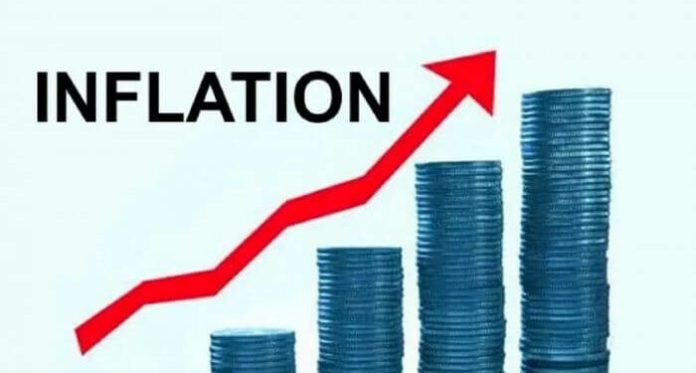The Organised Private Sector (OPS) has raised alarm over Nigeria’s rising inflation rate, warning that it could lead to increased production costs, higher consumer prices, and mounting economic hardship.
On Wednesday, the National Bureau of Statistics (NBS) reported that Nigeria’s inflation rate rose to 34.80% in December 2024, a marginal increase from 34.60% in November. This marks a persistent upward trend fueled by factors such as currency depreciation, high energy costs, and ongoing supply chain disruptions.
Inflation Trends and Contributing Factors
The NBS report revealed that the average inflation rate for 2024 stood at 33.24%, a significant rise from 24.66% in 2023. The December inflation rate increase of 0.20% from November was attributed to heightened demand for goods and services during the festive season.
According to the report, inflation was driven largely by food and non-alcoholic beverages, which accounted for 18.02% of the overall rate. Housing, utilities, and fuels contributed 5.82%, while transportation added 2.26%. Sectors like health and communication had smaller impacts, contributing 1.05% and 0.24%, respectively.
Urban areas experienced higher inflation, with rates hitting 37.29% year-on-year in December, up from 31.00% in December 2023. Rural inflation rose to 32.47%, compared to 27.10% in the previous year. Month-on-month inflation rates in both urban and rural areas showed slight declines, indicating minimal short-term relief.
Food and Core Inflation
Food inflation remained a critical concern, surging to 39.84% year-on-year in December, up from 33.93% in December 2023. Staples such as yams, rice, maize, and dried fish drove this increase. However, month-on-month food inflation dropped to 2.66% from November’s 2.98%, partly due to reduced prices for tubers, soft drinks, and local beer.
Core inflation, which excludes volatile agricultural products, reached 29.28% year-on-year, up from 23.06% in December 2023. Key contributors included rising transport fares, meal prices at local eateries, and personal grooming services.
Organised Private Sector Reacts
Leaders in the private sector have expressed deep concern over the implications of sustained inflation. Segun Kuti-George, Vice President of the Nigerian Association of Small-Scale Industrialists, highlighted the challenges businesses face as production costs soar.
“The cost of raw materials, logistics, and machinery continues to rise, making locally produced goods less competitive. This could lead to higher inventory and, ultimately, business closures,” he warned.
Kuti-George also noted that the ongoing monetary policy rate hikes by the Central Bank of Nigeria (CBN) have failed to curb inflation. “The Nigerian economy seems to defy traditional economic theories,” he remarked.
Dr. Femi Egbesola, President of the Association of Small Business Owners of Nigeria, emphasized the broader economic consequences, including reduced purchasing power, declining profitability, and diminished investor confidence.
“Inflation has made our exports less competitive and significantly increased unemployment. The erosion of savings and investments in the private sector has compounded poverty and reduced economic growth,” Egbesola stated.
Experts Weigh In
Olusola Obadimu, Director-General of the Nigeria Association of Chambers of Commerce, Industry, Mines and Agriculture, described the inflation as cost-push in nature, driven by rising production costs rather than increased demand.
“Containing inflation under current circumstances is extremely challenging. The cost-push effects are compounded by global economic pressures and domestic inefficiencies,” Obadimu explained.
The latest Consumer Price Index report underscores the urgent need for strategic interventions to stabilize prices and address underlying economic challenges.
Economic Implications
The year-on-year inflation increase of 5.87 percentage points from 28.92% in December 2023 highlights the sustained pressure on Nigerians’ cost of living. Rising prices for essential goods, coupled with stagnant wages and limited purchasing power, pose significant risks to household welfare and economic stability.
OPS leaders are calling for coordinated policies to address inflation drivers, promote local production, and enhance competitiveness in global markets. Without decisive action, the persistent rise in inflation could exacerbate poverty and stifle economic recovery in 2025.

